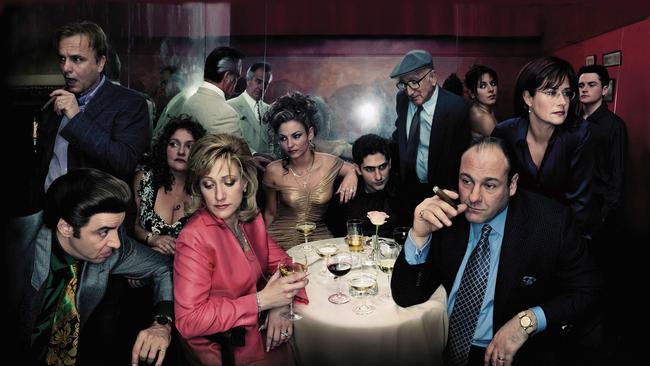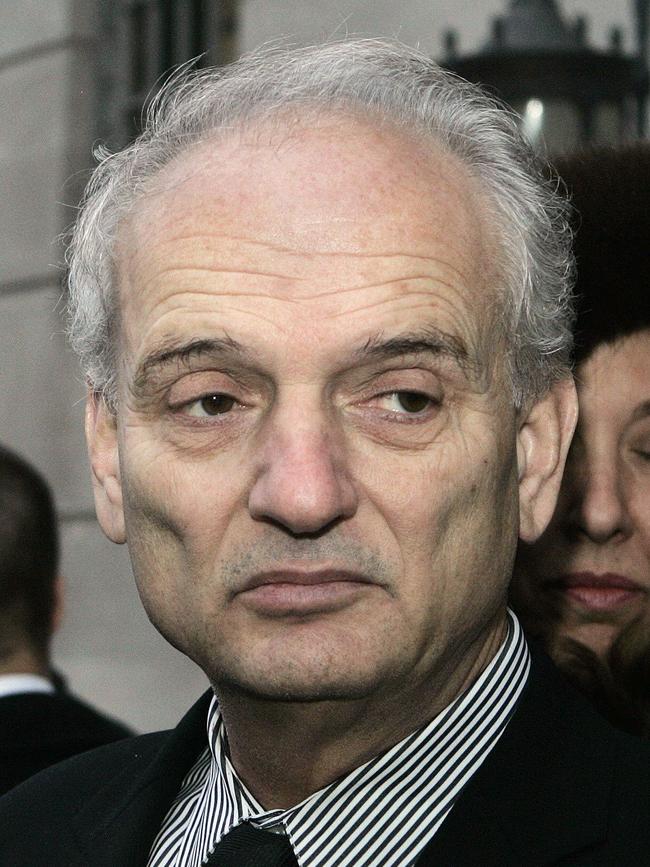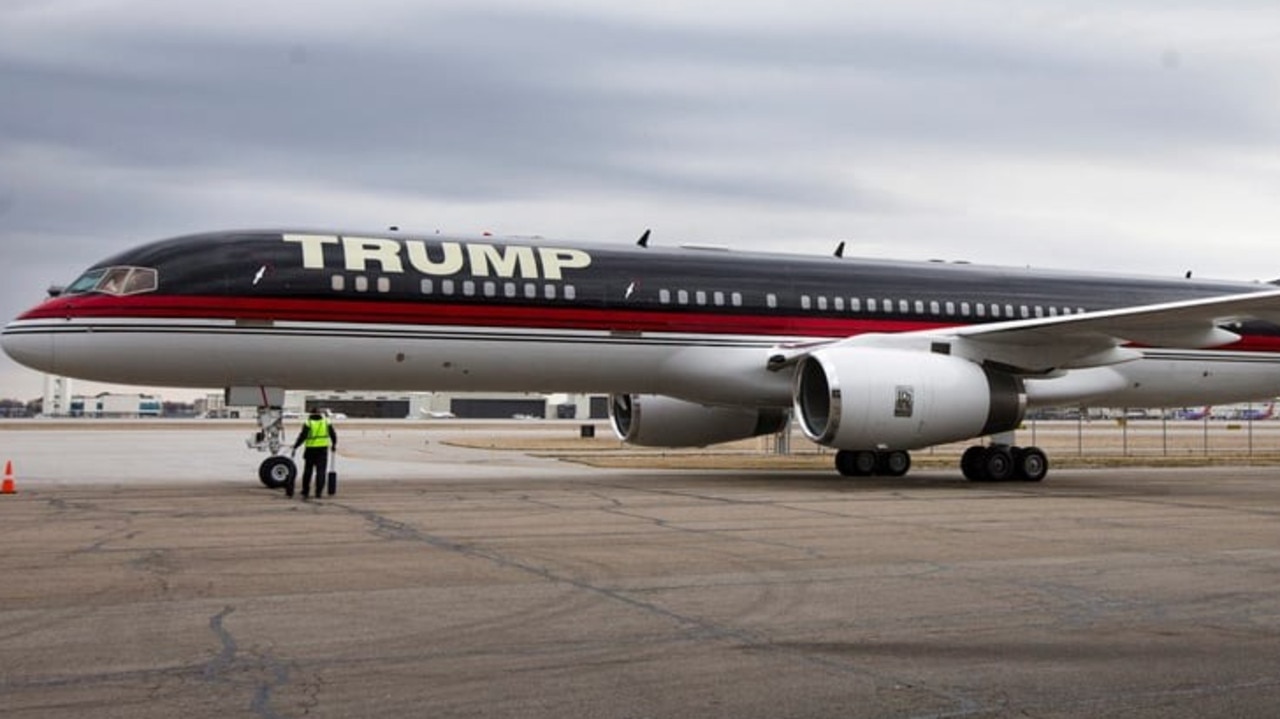Sopranos boss David Chase says streaming services are killing television
David Chase sparked the golden age of television when he created legendary series The Sopranos – 25 years on, he says the future is bleak.

David Chase is sitting at home in Los Angeles in front of blood-red walls. Sunlight streams through a window, so he stands up to close the blinds. Now suitably hugged by claret and darkness, he talks about The Sopranos, his violent, funny, caustic, moving and endlessly rewatchable crime drama, which first aired a quarter of a century ago in January 1999, and, across six series and 86 episodes, changed TV permanently.
“Some people, it seems, are obsessed by it,” he says when I ask him how much he enjoys revisiting his finest moment.
Chase, 78, used to watch his show when it was originally shown every Sunday night but has barely been back since. “Still, it’s been gratifying to see people hold an interest. How could that be anything but pleasing to the ego, to your place in the human race?”
The Sopranos was a simple, brilliant twist on a well-trodden genre. Take the Italian-American mafia, beloved in The Godfather and Goodfellas, but turn their stories into a TV series that focuses, yes, on the murdering, but just as much on the mob boss Tony Soprano’s family and his sessions with a therapist.
Feelings were as important as “fuggedaboutit” – no wonder it is often labelled the best show in history, the one that ushered in the so-called golden age of TV.
However, as The Sopranos toasts its 25th birthday, its creator is in no mood to party. Chase feels that everything he fought for to freshen up TV is hurtling back to where it was.
“Yes, this is the 25th anniversary, so of course it’s a celebration,” he says, not sounding celebratory at all. “But perhaps we shouldn’t look at it like that. Maybe we should look at it like a funeral.” He means a funeral for the type of show that was synonymous with The Sopranos – The Wire, Breaking Bad, Mad Men and so on.
“That was a blip,” he says with a sigh. “A 25-year blip. And to be clear, I’m not talking only about The Sopranos but a lot of other hugely talented people out there who I feel increasingly bad for.”
To get into what he means let us head back to the start – 1999, when The Sopranos was a breath of fresh air. Back then, TV was advert-driven and formulaic.
However, thanks to the subscription service HBO, Chase was able to run uninterrupted episodes at an hour apiece. It allowed TV to feel as ambitious as cinema.

When Chase talks about making The Sopranos he mentions Elvis Costello and specifically his song Radio Radio. “I wanna bite the hand that feeds me / I wanna bite that hand so badly / I want to make them wish they’d never seen me,” it goes, and while Costello was railing against commercial radio, Chase took his lyrics to inspire a fight against TV networks.
“It is exactly how I felt,” he says about Costello’s words. “And I succeeded too – I made them regret all their decades of stupidity and greed. Back then the networks were in an artistic pit. A shithole. The process was repulsive. In meetings these people would always ask to take out the one thing that made an episode worth doing. I should have quit.”
Chase was in his 50s, angry, frustrated and depressed. He was a jobbing writer but wanted to make movies. “I had written at least 10 screenplays, though,” he says. “And none succeeded. It was apartheid. If you were a TV writer you couldn’t drink the water in pictures.” As an alternative to the big screen he started to write The Sopranos, only for his pilot to be rejected too, by leading networks such as Fox.
“I should have known that a real mafia wise guy show would not happen on US TV,” he scoffs. “If you think your grandmother is risk-averse you should meet network people.” Why did these channels not commission The Sopranos? “Well, I could’ve done an idiotic mob show, a watered-down Godfather, but why would you cut its balls off yourself? On a network I could not do out-there Italian characters, and there was sex, violence and bad language. It was never going to happen.”
Chase shakes his head. Did anyone who had turned down The Sopranos ever apologise? “Never,” Chase says, shrugging.
“That’s typical Hollywood. They never take responsibility but load responsibility on to the talent and bury them in guilt for not ‘getting’ it.”
Then came HBO and its bold, adult TV. It is hard to overstate the impact the channel had. In 1997 it made the prison drama Oz and, free from the puritanical control of ad money, loaded up on the R-rated content – draw a straight line from that to Game of Thrones.
Oz, though, was small fry compared with the impact of The Sopranos. Chase loved the lack of ads as much as being allowed to have his characters kill and curse. “I had the best job in Hollywood.” It was total freedom and for a while the small screen good times kept coming, with Netflix, Prime Video and Apple TV+.
Chase, however, thinks that era is over. Which brings us back to the funeral. “We’re going back to where I was,” he says. He takes a breath. “They’re going to have commercials.” He’s right, adverts are back – on Netflix and Prime Video. “And I’ve already been told to dumb it down.”
He talks about a show he has tried to make with young screenwriter Hannah Fidell, about a high-end prostitute forced into witness protection. They are on their third draft and fifth meeting and have been told “the unfortunate truth” that it’s too complex. “Who is this all really for?” he groans. “I guess the stockholders?
“As the human race goes on,” he continues, “we are more into multi-tasking. Your phone is just one symptom, but who can really focus? Your mother could be dying and you are by her hospital bed taking calls. We seem to be confused and audiences can’t keep their minds on things, so we can’t make anything that makes too much sense, takes our attention and requires an audience to focus.
“And as for streaming executives? It is getting worse. We’re going back to where we were.”
It is a timely point – there is a real concern among TV executives that, given a choice between their phones and the TV, viewers will choose the former. Hence Chase’s mention of dumbing down. The thinking is that if viewers can follow something very simple and look at their phone at the same time, they will be happy. It is TV that allows for the use of a second screen – something unthinkable when watching The Sopranos.
And if anyone brings up Succession as a counter to Chase, remember that show started six years ago. “So, it is a funeral,” Chase says. “Something is dying.”
Chase barely watches TV now. He saw Mad Men (Matthew Weiner, who worked on The Sopranos, wrote it) and Boardwalk Empire (Terence Winter, who worked on The Sopranos, wrote it), but none of those other long-form classics. “I don’t know why,” he says, a little sadly. “You try to live your life and there have been illnesses in my family that have taken energy away.”
He sighs when we talk about James Gandolfini, who played Tony Soprano and died in 2013. It meant a lot to Chase to get the actor’s son, Michael, to star in his film prequel to The Sopranos, The Many Saints of Newark, in 2021, but James could have been one of the greats.
I ask if there are other actors from the show who he is surprised did not make more of their careers. “Yes,” he states bluntly, adding that he does not want to name them because that would be saying those actors failed. “But some made bad choices,” he pipes up unprompted. “Drea de Matteo made a couple of mistakes.” De Matteo was a firecracker as tragic Adriana. “She’s fantastic.”
We end, as most interviews with Americans will this year, on Donald Trump. Chase does not think Tony Soprano “would give a shit about the election”, but that Trump is such a huge figure he couldn’t ignore him.
In the very first episode of The Sopranos Tony complains to his shrink about America going downhill. “I’m getting the feeling that I came in at the end,” he says – and he does not mean the mafia: he means his country.
“And that’s how I felt,” Chase says of the words he gave Soprano, echoing his own views. “Something was wrong with the America I’d grown up in. America used to be respected. We were the breath of fresh air in the 1940s and 1950s; a beacon of democracy. But I thought television, advertising and materialism were killing us.”
However, 25 years on – with Trump – if he thought America was in trouble in 1999, what does Chase think of the country right now? “Well, the cat’s out of the bag,” he begins, “about the race problem, and how much of our white population hates our black population. That had been kept quiet since the 1960s.”
He pauses, building up to an ending as stirring as the one he wrote for his show, the controversial finale in which Soprano probably dies. “This is my theory about Trump,” says the man who once changed TV. “Americans were so used to looking at their TVs and seeing bullshit – bullshit, lies, hype, salesmanship. Just bullshit. That was their life and then this guy comes along who personifies that all. They’re used to that. They can’t tell the difference. And they want it. They want it.”
The Times


